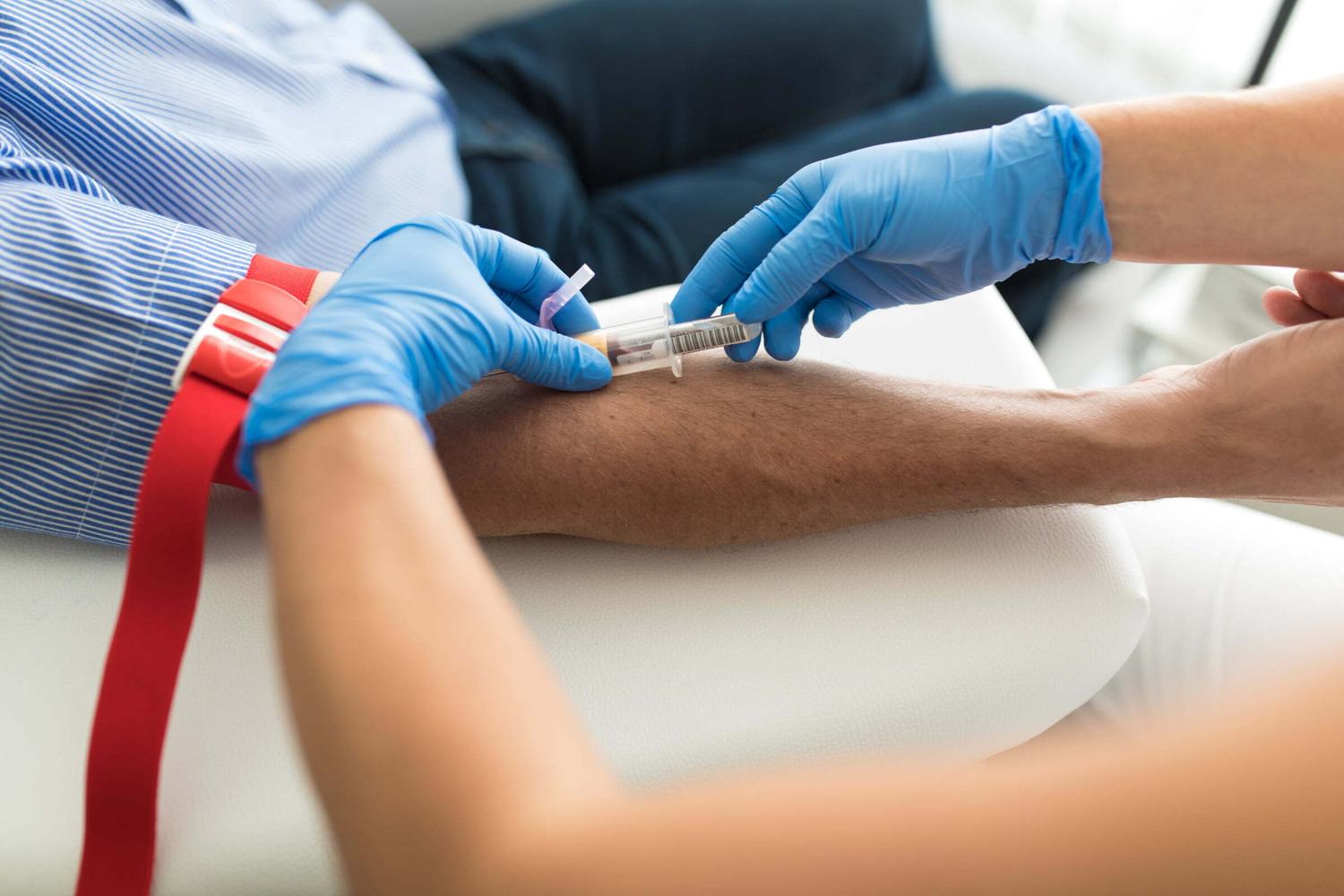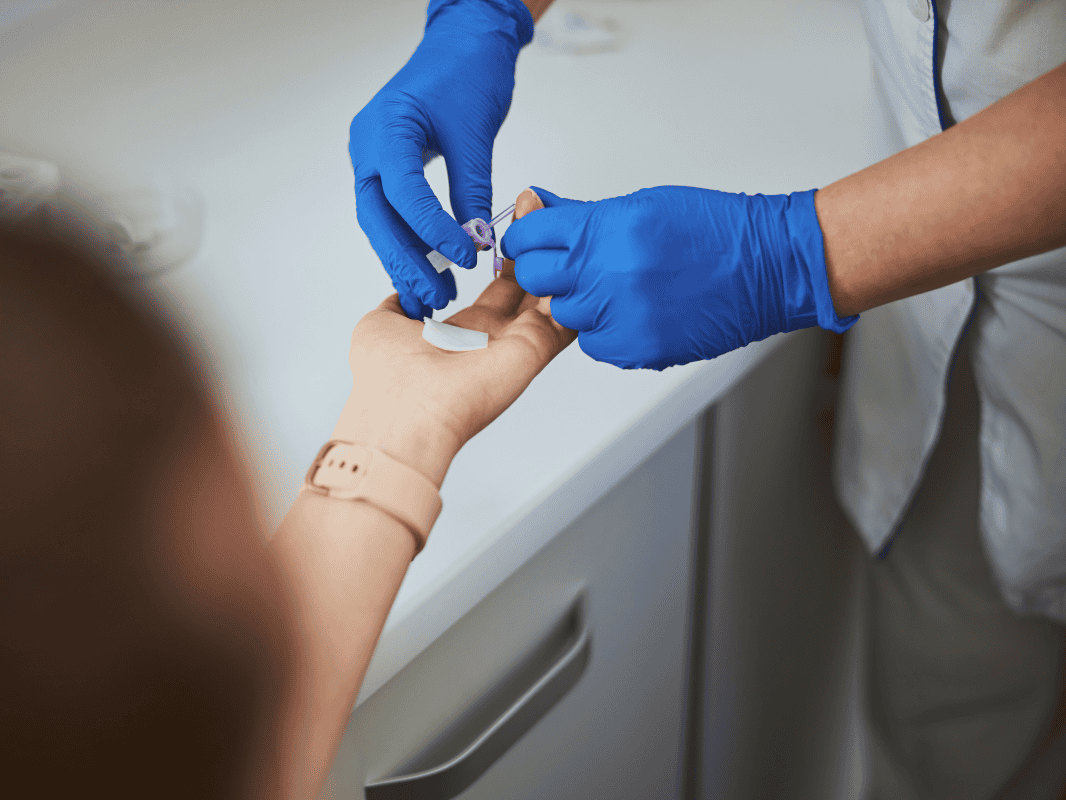Can You Get TSH Lab Tests Online?
Yes! Sesame has partnered with over 1,500 Quest Diagnostic locations to offer blood testing - such as TSH tests - without having to see a doctor first. When you visit a doctor’s office, you will usually have to pay for both the blood test and the doctor’s order for the test. When you schedule your blood test online through Sesame, the price of the doctor's order is included with the price of the test. With labs purchased through Sesame, you are guaranteed the best cash price for your TSH test - no insurance needed.
If you’re ready to book a lab test, follow these simple steps:
1) Search for the type of lab test you are looking for (e.g., “TSH Lab Test”, or “Testosterone Lab Test”). 2) Browse Quest Diagnostics locations to find the clinic that is most convenient for you. 3) Either book a walk-in appointment or schedule a visit for a time that works best for you. 4) Save 50-60% on your test with our online-only prices. Pay a one-time price upfront without ever having to see a doctor. 5) We send immediately send your order to the clinic of your choosing so that you can get your testing done that very same day. Either head to the office for a walk-in appointment, or show up at your scheduled appointment time.
Can’t find the test you’re looking for? Email us at support@sesamecare.com or call us at 1 (877) 947-6411 between 9 AM and 5 PM Central, Monday through Friday. We'll try to find you a lab or blood test as quickly as we can.
What is a TSH Lab Test?
A thyroid-stimulating hormone (TSH) test is a blood test used to measure levels of TSH in the blood - which can help doctors determine how well the thyroid gland is working. The thyroid-stimulating hormone is produced by the pituitary gland in the brain to act as a stimulant for the thyroid gland. TSH is inversely proportional to the level of T3 and T4 hormones - the main hormones produced by the thyroid - as it is released by the pituitary glands in response to thyroid hormones. If thyroid hormone levels are too low, more TSH will be produced by the pituitary gland to provoke hormone production from the thyroid gland. If thyroid hormone levels are high, your pituitary gland should produce less TSH. While TSH tests do not directly measure levels of thyroid hormones in the blood, TSH tests help denote thyroid function.
Why are TSH Tests performed?
Doctors usually order TSH tests to screen for an overactive thyroid (hyperthyroidism) or underactive thyroid (hypothyroidism). High levels of TSH might mean an underactive thyroid, whereas low levels of TSH may indicate an overactive thyroid. TSH tests may be performed in conjunction with a T4 test to definitively diagnose thyroid conditions such as those listed above.
What is hypothyroidism/ hyperthyroidism?
The thyroid gland produces the hormones triiodothyronine (T3) and thyroxine (T4), which help regulate metabolism. Metabolism can affect your weight, body temperature, and energy. An under or overactive thyroid can alter your heart rhythms, which may lead to heart failure.
Hypothyroidism: An underactive thyroid gland slows down the metabolism, which can lead to weight gain and fatigue. Other symptoms of hypothyroidism include:
- Sensitivity to cold
- Constipation
- Change in menstrual periods
- Muscle pain/ weakness
- Joint pain/ stiffness
- Dry skin and hair
- Increased cholesterol levels
- Hoarseness
- Depression
- Confusion and memory problems
Hypothyroidism is commonly caused by Hashimoto’s disease, an autoimmune disease in which cells in the thyroid are mistakenly attacked by your body’s immune system. An underactive thyroid can lead to heart problems, mental health problems, nerve damage, infertility, and other complications.
Hyperthyroidism: An overactive thyroid gland produces excessive levels of T3 and T4 hormones. This can produce symptoms such as:
- Weight loss
- Rapid heartbeat (tachycardia)
- Nervousness or anxiety
- Tremor (trembling in the hands and fingers)
- Diarrhea
- Increased appetite
- Changes in menstrual cycles
- Sensitivity to heat and excessive sweating
- Sleep problems
- Fatigue
- Bulging eyes (common in Grave’s disease)
- Hair loss, or thinning of hair
Hyperthyroidism can lead to complications such as heart problems, brittle bones, eye problems (especially common with Grave’s disease), and thyrotoxic crisis. This last condition results in a sudden increase in the severity of your symptoms and delirium. A thyrotoxic crisis is a medical emergency and requires immediate care.
How are TSH tests performed?
A blood sample is taken from the arm to measure TSH levels. Before the needle is put into your skin, the area will be sanitized. You may feel a pinch as the needle punctures your skin, but this discomfort should subside within a few seconds. The puncture site will be cleaned and bandaged after the needed amount of blood has been drawn from the arm.
TSH tests are quick and do not require sedation. You will be cleared to leave the clinic and resume your daily activities once the testing is finished.
In most cases, you’ll get your results within 24 hours of your test. If your results require a follow-up appointment, we will advise you on the next steps.
How do I prepare for a TSH Test?
No preparation is needed. Feel free to eat and drink normally before the test.
How long does it take to book a TSH Test?
Sesame is the fastest way to book a TSH lab test - at the best cash price. Use our booking platform to schedule a lab test directly at the most convenient Quest lab near you. This takes about 2 minutes. Once you’ve finished checking out, we send your order directly to the lab so you can get your blood work done that day - often with results in 24 hours. That’s convenience you won’t find anywhere else.






